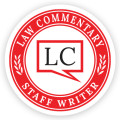The State of Arizona and Representative-elect Adelita Grijalva have sued the U.S. House of Representatives and Speaker Mike Johnson, claiming that the Speaker has no constitutional authority to delay swearing in a duly elected member whose qualifications are not in question.
The lawsuit, filed on October 21 in the U.S. District Court for the District of Columbia, centers on a single but significant issue: whether the Speaker can postpone seating a new member who has already met every constitutional and statutory requirement for office.
According to the complaint, Grijalva won the September 23 special election to represent Arizona’s Seventh Congressional District with nearly seventy percent of the vote. The state completed the canvass of results and sent her official certificate of election to the House on October 14, fulfilling all steps required for her to take office.
The filing states that Speaker Johnson first told Grijalva he would swear her in “as soon as she wants,” but later said he would wait until the House returns to regular session. The plaintiffs argue that this delay violates the Constitution and leaves both Grijalva and the State of Arizona without full representation in Congress. They ask the court to declare that Grijalva becomes a member of the House once she takes the oath required by law and that, if the Speaker refuses to administer it, any official authorized by law may do so.
Arizona Attorney General Kris Mayes filed the lawsuit on behalf of the state, arguing that the Speaker’s refusal to seat Grijalva exceeds his authority and undermines Arizona’s right to full representation in Congress. Arizona is entitled to nine members in the House but currently has only eight, leaving one district without a representative until Grijalva is sworn in. Federal law guarantees the state full congressional representation, and the lawsuit seeks to ensure that this right is not obstructed by political or procedural delay.
The central question is whether the Speaker can use control over the oath of office to delay seating a member when there is no dispute about the election results. It cites Article I, Section 5 of the Constitution, which allows the House to judge the elections and qualifications of its members. That power, the plaintiffs say, is limited to confirming only the three qualifications listed in the Constitution: being at least twenty-five years old, having been a U.S. citizen for seven years, and living in the state one represents.
The complaint also refers to Article VI, which requires Representatives to take an oath to support the Constitution but does not specify who must administer it. The plaintiffs argue that this lack of detail means the Speaker cannot use the oath process to delay seating a new member.
Arizona and Grijalva base part of their argument on the Supreme Court’s 1969 decision in Powell v. McCormack, a landmark ruling that limited Congress’s power to exclude duly elected members who met all constitutional qualifications. In that case, the Court held that the House could not deny a seat to a representative chosen by the voters. If the chamber wished to remove that person for misconduct or another reason, it first had to seat them and then expel them by a two-thirds vote. The plaintiffs argue that the Speaker’s refusal to administer the oath mirrors the kind of exclusion the Court found unconstitutional in Powell v. McCormack.
The complaint also describes the Speaker’s conduct as ultra vires, a Latin phrase meaning “beyond one’s powers.” In legal terms, an act is considered ultra vires when an official acts outside the authority granted by law or the Constitution. The plaintiffs argue that while the Speaker customarily administers the oath, that role is ceremonial rather than discretionary. They add that neither the Constitution nor any statute allows him to withhold it, and that House practice has long permitted other officials to perform the swearing-in when necessary.
The oath at the center of the dispute is established under 5 U.S.C. § 3331, a federal law that sets the exact words every Representative must recite before assuming office. In that oath, members promise to support and defend the Constitution of the United States and to carry out the duties of their position faithfully. After taking the oath, members are formally authorized to carry out the duties of their office, including voting, introducing legislation, and representing their constituents. The plaintiffs maintain that Grijalva must be recognized as a member of the House once she recites this statutory oath, regardless of who administers it.
The complaint compares Grijalva’s case with other recent special elections, noting that new members from both parties have been sworn in within days of their victories, often during brief pro forma sessions. Plaintiffs argue that delaying Grijalva’s oath until a regular session departs from this long-standing practice and leaves Arizona voters without the representation they are entitled to.
They also claim the delay may be politically motivated, citing Speaker Johnson’s public remarks linking the timing of the swearing-in to budget negotiations. The lawsuit asserts that constitutional rights cannot be used as a form of political leverage.
The plaintiffs argue that judicial intervention is necessary to ensure Grijalva is sworn in and that Arizona’s voters regain the representation guaranteed to them under the Constitution.






